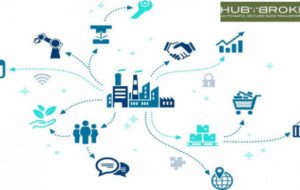
views
When we look at the past from a technological point of view, things have evolved significantly.
Customer data will continue to play an important role in predictive analytics. Companies have now started to rely on machine learning services to analyze buying habits to optimize the supply chain and personalize offers for their customers.
While predictive analytics requires humans to find statistical trends in information, machine learning development is a subset of artificial intelligence (AI) that uses computational methods to find data trends. Computers can then autonomously make predictions based on those trends (or patterns), effectively "learning" without being programmed for a simple task.
The role of machine learning in retail:
Machine learning helps retailers optimize costs, collect customer information and create logistics processes more efficiently. Machine learning's ability to optimize the retail industry lowers costs and builds stronger relationships with customers.
Why does retail need machine learning?
Predictability is the foundation for survival for retailers. With a Machine learning development company in USA and automated machine learning tools, you can predict how many products will be needed on any given day in response to retail customer demand, saving money and time. Machine learning and AI can also be of great help in planning to optimize purchasing, inventory, and sales. This way you will know if the current assortment is correct in terms of retail customer demand if prices are set correctly, which stores need to organize the supply of certain products, taking into account regional characteristics and others.
According to Artificial intelligence service company in Texas Research, annual retail spending on AI will increase 230%, from $3.6 billion in 2020 to $12 billion in 2023. The primary direction of machine learning implementation in retail will be the use of learning tools automatic for demand forecasting. Revenue from product and service providers in this industry will reach $3 billion by the end of the "reporting period" (an increase of 290% compared to $760 million in 2019).
In retail customer service, a Deep learning company in Chantilly research sees great potential in chatbots working with customers in sales rooms. By 2023, bots that help shoppers navigate the store will generate annual savings of $439 million for retailers ($7 million in 2019). They will make 22 billion visitor contacts and help make $112 billion worth of purchases. Sounds pretty impressive, doesn't it?
Benefits of machine learning in the retail industry:
Increase operational efficiency, reduce inventory costs, and adapt retail operations to respond to market changes, now and in the future with this technology.
That is how:
-
Determine the best price for products and services
It takes into account all the factors that affect the price of the product to help providers arrive at the best rates for their offers.
-
Predict needed inventory levels on hand
Based on the evaluation of historical sales data and current buying patterns, machine learning provides an accurate estimate of the orders you can expect.
-
Provide personalized customer services
AI-powered smart chatbots make it possible to support customers 24/7, resolving their queries quickly with personalized recommendations, without human intervention.
-
Identify providers offering the best deals
You can compare rate quotes from multiple providers with market prices to help offer the best deals and make profitable decisions.
-
Personalize the shopping experience
ML can enable the creation of hyper-personalized consumer personas in minutes to help personalize deals and offers in real-time to increase conversions.
-
Track customer journeys across touchpoints
You can efficiently track customer journeys in-store and online to identify products that are in constant demand and areas that receive the most traffic.
However, to take advantage of these benefits of ML, it is important to ensure that the data is free of errors and inconsistencies. Clean data ensures accurate predictions to arrive at the best decisions and keep customers coming back.
How important is machine learning for the future of retail?
In 2016 Artificial intelligence companies in USA survey, 50% of buyers agree to share private information if the company can offer unique and personalized support and promotions. To better utilize this data, the retail industry needs to apply machine learning to its workflow. Machine learning can improve customer service and create a personalized experience for shoppers. For example, Amazon, the world's largest retailer, derives 55% of its revenue from auto recommendation engines, which are widely rated as the best on the market.
Retailers have also recognized the power that machine learning can bring to their businesses. In 2018, the number of retail companies adopting AI or machine learning increased by up to 600% compared to 2016. A Data science company in USA survey of retailers around the world identified cost savings, improved decision making and automation of processes as some of the main aspects in which technology has great potential to prosper.
Furthermore, this trend is encouraged by the thousands of boards of directors of retail chains.
-
20% of C-level managers in 10 different countries rely on machine learning applications as the core of their companies.
-
65% of companies would likely adopt machine learning as it helps them in decision-making.
-
US retailers using machine learning to analyze data from their supply chain have seen up to a 10% increase in operating margin over the last 5 years.
Conclusion:
Sales history information enables retailers to offer personalized services to customers. A happy returning customer is a customer. The chances of them coming back are multiplied when they get the right products.
Machine learning enables advanced systems to transform data promotion by automating operational tasks. Machine learning plays a crucial role in giving retailers a competitive advantage.
Incorporating machine learning in the retail business is the need of the hour. Machine learning enables retailers to accurately capture shopper data. The use of ML and AI in retail does not improve sales but also helps make informed business decisions.
Recommended blogs:
USM’s team of expert AI company developers programs business systems with advanced machine learning solutions to produce actionable decision models and automate business processes. Machine learning company in Texas convert raw data from legacy software systems and big data providers into clean data sets to run classification (multi-label), regression, clustering, density estimation, and dimensionality reduction analyses and then deploy those models to the systems.
About the Author
I am a passionate content writer and blogger who has written a number of blogs for mobile app development. Being in the blogging world for the past 3 years, I am currently contributing tech-laden articles and blogs regularly to USM Systems. I have a competent knowledge of the latest market trends in mobile and web applications and express myself as a huge fan of technology.












Comments
0 comment